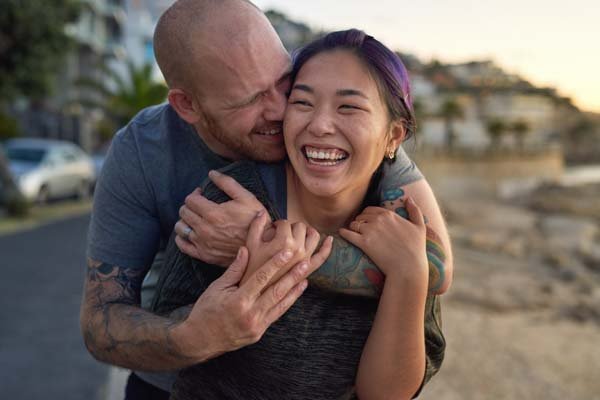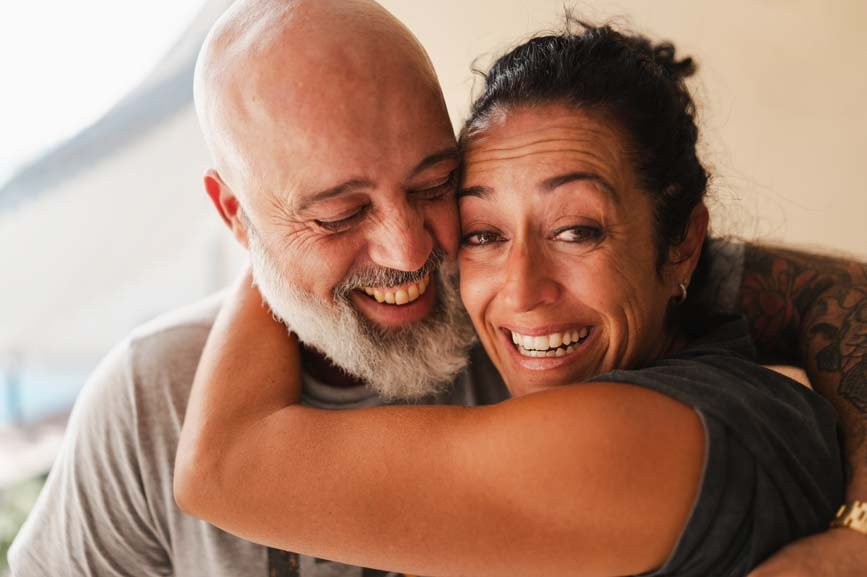Minneapolis Couples and Marriage Counseling
Do You Feel Alone In Your Relationship?
Are you struggling to communicate with your partner? Do you share your wants and needs only to feel like you aren’t being heard?
It may be that you are both arguing in circles, and you end up being labeled as the “emotional one,” and they the “logical one.”
One of you might be having problems regaining trust after an affair.
You might be tired of asking “what’s wrong?” and getting the silent treatment.
We are wired for connection, so fighting with the person who is supposed to love us the most is extra painful. It feels like a special kind of loneliness. Increasing career demands, a newborn, and even just growing apart can fray the connection between partners.
Instead of connection, couples can find The Four Horsemen at their doorstep: Criticism, Defensiveness, Contempt and Stonewalling. In John Gottman’s (couples relationship researcher) predictive studies, these were the behaviors that most affected 5-year outcomes. Fortunately, couples counseling can help you repair your relationship.
Marriage or Couples Counseling For When You Hit a Bump
Every Relationship Hits Bumps. John Gottman’s Research showed that 69% of all arguments couples face are problems with no actual solutions, only compromises. For so many couples, it’s those very same problems that get them stuck.
Couples will often agree that they have several primary patterns of fighting that get them into trouble. This is your cycle. It weaves its way through multiple stuck spots, whether that is money, or respect, or kids. Couples will usually agree after only a few minutes of discussion that they have a pattern of fighting that “drives them crazy.”
The good news is figuring out this one cycle helps put the brakes on fighting in multiple stuck spots. As a couple becomes more and more aware of the cycle in real-time, fights that used to break out around a couple of areas both start reducing in severity and frequency.
Is There a Difference Between Marriage and Couples Counseling?
Yes and no. My approach depends on changing the emotional system that’s hijacking your relationship. So whether you’ve been married or in a long-term committed relationship, it doesn’t change the general approach I use because similar dynamics tend to be in play. However, there can be differences in couples that are married vs. ones that are in a committed relationship.
The institution of marriage can be a trigger to a person: Some couples can have a great relationship for 5 years, and start having big fights the moment they’re married.
Structural expectations can be at play: The term Marriage means different things to different people. Unspoken expectations can cause bumps in the road when one person doesn’t understand them.
Some social systems expect certain things out of marriage: Some occupations are still drawn along gender lines and expect to plug into 1950’s style families. This can cause stress when your family is more egalitarian.
A Way Out Together In 4 Steps
There are different styles of therapists, and everyone should look for one that really matches their needs and goals. I intervene to create a safe space where people can actually be vulnerable. Most couples come to me full of anger because of the way they’ve been fighting, but when there’s a safe space, clients can actually divulge more vulnerable emotions that actually get heard by their partner.
I also intervene to help people focus on what’s important: There are so many moving parts in fights that the most important stuff can get lost in the details. You can start with how you want the dishwasher loaded only to be lost in the details, drowning in a soup of feelings. I help you focus on what’s really truly important to you and help you communicate it in a way that maximizes the chance your partner hears it.
In couples counseling, I help clients repair their relationships in 4 major steps:
First, we calm down your systems. This means calming both individuals and the fighting between you two. It’s not enough to get calm - couples need a way of communicating things so that the other person can hear and understand requests. It is all too common for clients to speak more than they’re willing to listen. I’ll help you change this dynamic.
Next, we’ll work together to identify fighting cycles. Many couples have a way they trigger each other. There are common topics like parenting, money, and sex that couples fight over. But many couples have a way of fighting that repeats itself even though the content they talk about is different.
Then I’ll help both of you team up to fight against your fighting cycle. This does two things: reduce the conflict and create a sense of camaraderie. It’s easy when you’re fighting with your spouse to say “If you wouldn’t be so stubborn, I wouldn’t get so angry!” but can you say to your partner,”We’re doing this fighting thing we do again. What are we going to do about it?
Finally, both of you get to ask for what you need from your partner – This is a crucial step. I’ll help you both ask for what you need without getting triggered.
Couples commonly come to me pointing fingers and feeling frustrated and angry. I help couples reduce the finger pointing and start asking “What can we do differently?”
I’m a former engineer who understands the logic as well as the feelings side of human relationships. I can help couples bridge that gap when one of you says “I’m all about the feelings!” and the other person says, ”I’m the logical one!”
Common Questions About Marriage Counseling
What if my partner doesn’t want to come to sessions? Can I still get started on my own?
I work with couples or individuals who want to improve the way they do relationships. So if you want to come in and change your contribution to the fighting, I’m here to help. We can work with the way you feel triggered and the way you trigger your partner. I can use EMDR (a US Department of Defense approved treatment for PTSD) to reduce the amount of reactivity you may feel to your trigger. I can help you use tools to calm yourself.
I’m worried I’ll be blamed for all the problems in the relationship.
People come in worried about this, but find it refreshing that it isn’t a witch-hunt. I won’t be helping you find the bad guy because that probably hasn’t worked for you. Instead, I’ll be helping you find and change the bad pattern of relating.
I don’t have the time or money for marriage counseling.
I believe that no one has to do marriage or couples counseling. I firmly believe that there are multiple roads to wellness. However, couples that see me generally have a cycle of fighting that is repetitive and haven’t found a way out. If that’s you, I can help.
If you don’t have the time to do marriage counseling, I may not be the right fit. I believe that people have the right to agency and autonomy in their therapy. If you don’t want to do this, I’m giving you the permission not to do therapy.
If you want to do therapy, if you want change, you have to put the time in. There is no outsourcing this.
I was cheated on. How do I get over this?
I tell couples that for the one who wasn’t involved in the affair, it’s like a bomb went off. Now there’s a real feeling of injury (sometimes extending to a real physical feeling), and a disorientation (what just happened to me? will this happen again?).
You won’t be able to “get over it” until you feel there’s a sense of safety in the relationship. I help the uninvolved partner (who was cheated on) ask for details that will help them understand what happened. This can be a difficult - sometimes the details asked for will actually be hurtful to the person asking the question. In this case, I will slow down the conversation so people can make rational, helpful choices for themselves.
I’ll help the partner that was in the affair apologize for what they can apologize for. Then I’ll help both people talk about what went on that may have made their relationship more disconnected or vulnerable to injury. Again, this is NOT to excuse the affair. It is to help both sides understand what led up to it, apologize, and strengthen their bond to reduce the chances of it happening in the future.
I cheated on my partner. Is this going to be months of beating up on me verbally?
I don’t beat up on people (verbally or otherwise). What I will tell you is that your infidelity is like a bomb went off for your partner. Your partner no longer understands if or when it will happen again. They don’t understand the events leading up to this affair. Both of you will likely need to understand both in order to heal.
If your cheating hurt your partner, I can help you repair it:
I help couples establish a “truth base” where they both can agree on what happened.
I help the affair involved-partner apologize for their part in the betrayal.
I help both clients reconstruct the way the relationship opened a vulnerability in their relationship. This is NOT to excuse the affair -only to help people understand it better so that both people know it isn’t “random.”
Couples Counseling Is a Way Out For Both Of You. Together.
If being heard again and getting unstuck sound appealing, I encourage you to call or click on the “free consult” button to talk to an experienced couples therapist who will listen to you and offer some ways to get unstuck.












I was writing another article when I realized that I had no article I’ve written specifically on timeouts. This is a quick primer on how to do them well, and it starts with having an agreement on doing a timeout well before you need it. Don’t do the fire drill during the fire.